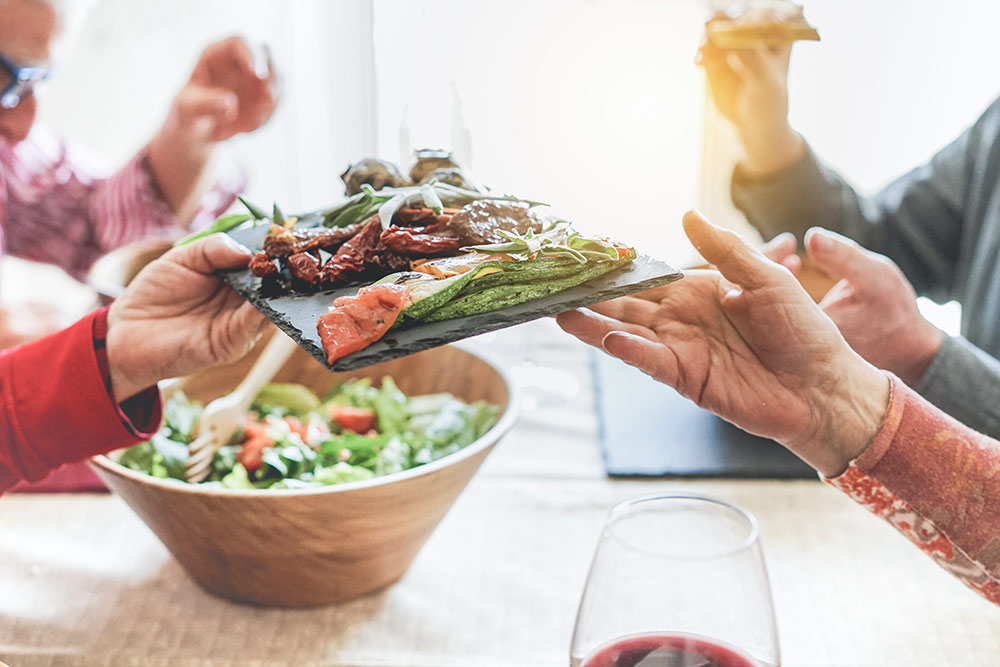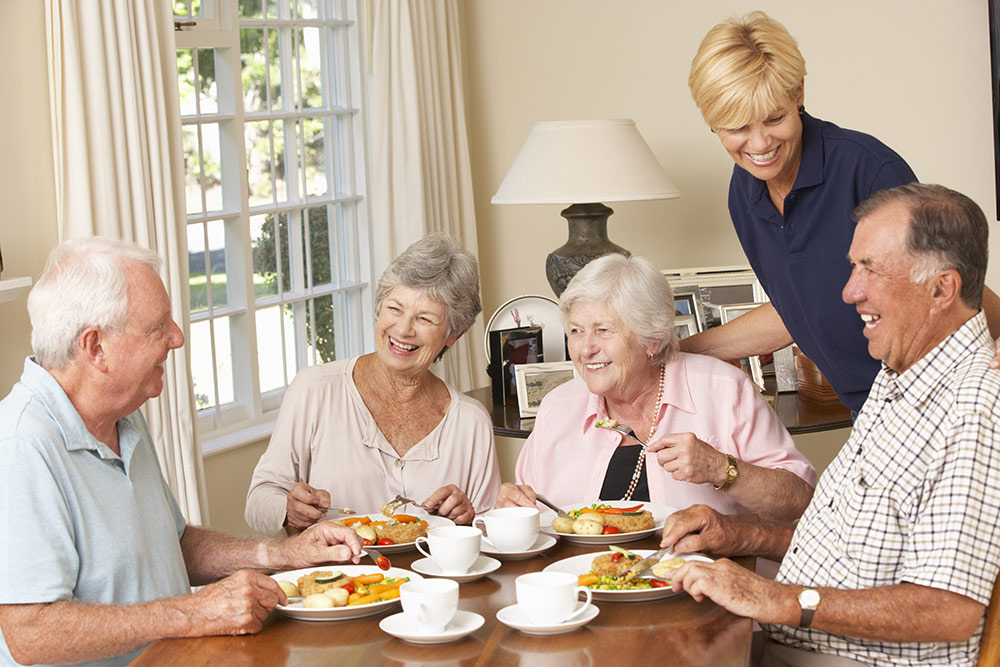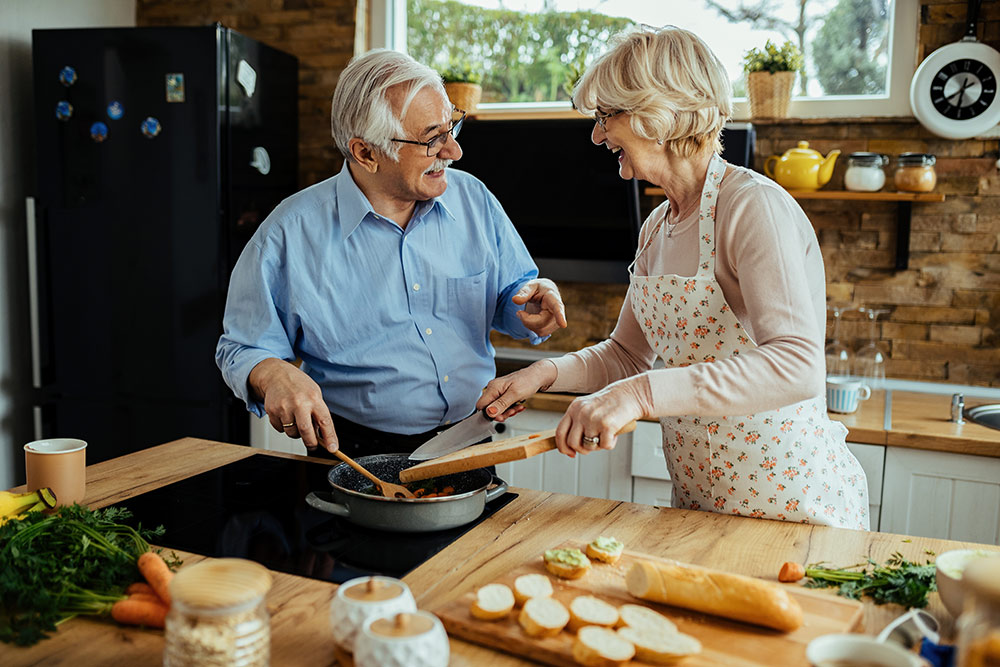Malnutrition has been a decade-long problem that mainly affects children, especially those living in third world countries.
However, studies suggest that this health problem also troubles many older adults, making it a serious senior-related health threat.
Maintaining proper nutrition has always been a challenging task for seniors, especially those who live alone. But with the current pandemic, where seniors are encouraged to stay at home, continuing a proper diet becomes a hefty activity to keep.
Without a balanced diet, a senior’s body will ultimately become malnourished, causing it to lead to severe health concerns like:
- An increased risk of heart disease, diabetes, hypertension, and obesity.
- A weak immune function
- Slow wound healing
- Decreased bone density
- Increased risk of attaining falls and fractures.
Malnutrition is a common cause of many seniors’ ill-health, but fortunately, it is an easy condition to detect and dodge.
Keep on reading to know more about the symptoms of malnutrition in seniors and smart ways on how to prevent it from happening to you or your senior loved one.

Malnutrition in Seniors: Signs, Symptoms, and Risks
Malnutrition refers to a health condition experienced by people who do not get the proper amount of nutrients their bodies need. It can mean two things:
- You are not getting enough nutrients or
- You are getting an exceedingly large amount of nutrients, more than your body needs.
Seniors have different dietary requirements than younger ones, but one thing remains true–the body needs protein, fiber, vitamins, and minerals to function effectively.
However, having your senior loved one adequately fed might be a problem due to a list of factors like medication side effects, underlying health conditions, slow metabolism, loss of appetite, and depressive episodes.
If you are worried your loved one might fall prey to the disease, here are the most common symptoms of malnutrition in seniors you can watch out for.
1. Sudden Weight Loss
One of the most classic signs of malnutrition is an individual’s sudden loss of weight. It is possible to have a seemingly “healthy weight” but still be malnourished.
But most seniors suffering from malnutrition lose up to 10% of their body weight in the span of 3-6 months, making weight loss one of its most common symptoms.
This sudden drop in weight is due to the lack of adequate dietary vitamins and minerals consumption.
You can confirm a senior’s sudden weight loss by checking their body mass index or observing their physical build.
2. Fatigue and Weakness
Lack of proper nutrients in the body can also result in chronic fatigue or lack of energy. The body no longer has any nutrients to convert into energy, making your loved one feel tired all the time.
Moreover, this lack of nutritional food can lead to muscle weakness and sudden loss of physical strength.
3. Other Symptoms
Symptoms of malnutrition in seniors may differ depending on your loved one’s current fitness level and how long the unhealthy diet has been going on.
Other frequent signs of this health condition include:
- Reduced appetite
- Slow to heal wounds
- Cracked or dry skin
- Memory problems
- Prolonged feelings of loneliness
- Always feeling cold
- Easily sick and takes a long time to get well.
You can detect malnutrition through these signs or by consulting your loved one’s GP. Doctors can perform various screening methods to diagnose malnutrition, such as nutritional assessment, BMI, anthropometric techniques, and blood tests.
Preventing Malnutrition in Seniors
Malnutrition occurs for a number of reasons. It can be because of a physical disability, a long-term medical condition, mental illness, poverty, living situation, or social issue.
Your first action should be to observe or talk to your loved one to identify the root cause of their low diet. Once you spot the culprit, it will be easier to address this condition and start guiding your loved ones to improve their health.
For instance, one such physical cause of improper nutrition is uncomfortable dentures. Knowing this, you can then set a dental appointment for your loved one and have the doctor install a new set of well-fitted dentures.
Some of the actions you can also take to prevent malnutrition from happening to your loved one include:
Eating Nutritious Foods
The best way to combat and prevent malnutrition is to encourage your loved one to eat wholesome meals packed with the essential nutrients they need.
Help them prepare their meals and make sure to include foods rich in vitamins, minerals, calcium, fiber, and lean protein.
Refrain them from consuming junk foods and processed ones containing preservatives and additives. Replace their unhealthy snacks with healthy ones.
Spice Up Everyday Meals
To boost your loved one’s appetite, you can mix and match fresh and healthy foods to create a delicious meal. Bring diversity to their everyday meals by seasoning them with healthy herbs and spices.
As much as possible, try out new recipes and avoid repeating foods they already had the previous day.
Get Them Movin’
Encourage your loved ones to perform regular exercises in the mornings to stimulate their metabolism and appetite. It also helps them maintain a healthy and strong physical body that can help them ward off diseases.
Consider Supplements
Seniors who experience difficulty in boosting their appetite should consider taking dietary supplements. These supplements help provide the body with the essential nutrients they missed from their diets, such as vitamins, minerals, and protein.
You can use oral nutritional supplementation, or supplement shakes with flavor. Talk to your loved one’s GP to know what kind of dietary supplements they need.

Organize Social Events
Nothing makes eating more indulgent than sharing it with your friends and family. Motivate your seniors loved one to gobble down nutritious meals by creating a social event out of it.
Organize family dinners or lunch dates with your loved one’s friends. Feasting is always more encouraging when you have someone to share good food with. Little chit chat and afternoon gossip can also help make it more exciting.
Talks to Professionals
You can also employ doctors or nutritionists’ help to develop a plan of action to improve your loved one’s health and prevent malnutrition.



